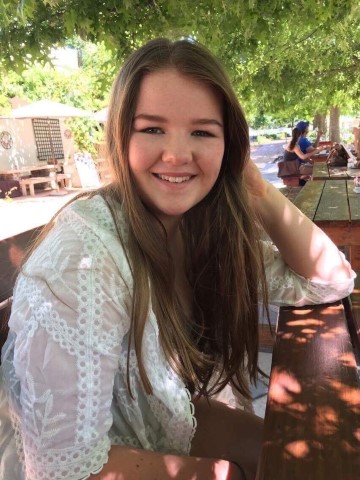
At only 16, Georgia Egan is somewhat of a veteran participant of diabetes research trials.
Diagnosed with Type 1 Diabetes when she was nine, Georgia was 13 when she first became involved in research, participating in various trials with either an exercise, food or technology focus.
“I want to be involved in research that will hopefully make living with diabetes easier,” Georgia, 16, said.
“Obviously, it would be great if researchers could solve diabetes but there are a lot of steps they need to take before they can do this. These trials are the steps and I want to be a part of that so that in 10 years when there’s possibly a cure, I can say that I contributed to research that helped to discover it.”
Georgia, who is in her final year of high school, recently completed a six-month Hybrid Closed-Loop Outpatient Trial — the longest and largest at-home trial of a hybrid closed-loop insulin pump system — a device that is a step towards an artificial pancreas.
The randomised control trial, which is still recruiting, involves selected participants testing an automated insulin delivery system to see if it is better at optimising blood glucose levels than standard therapy.
“This trial definitely helped with my diabetes management, especially overnight, and helped to keep my blood sugars as stable as possible which was fantastic,” Georgia said.
“I didn’t go low as much and there were definitely less hypos.”
The young people’s Hybrid Closed-Loop Outpatient Trial team is being led by Professor Tim Jones, co-director of the Children’s Diabetes Centre at The Kids Research Institute Australia and paediatric endocrinologist at Perth Children’s Hospital.
Professor Jones said researchers wanted to understand whether hybrid closed-loop systems could improve the quality of life of people living with Type 1 diabetes.
“This study will tell us if using this system is better than either insulin injections or normal insulin pump therapy at keeping blood glucose levels within the normal range,” Professor Jones said.
“Researchers will also explore how this technology affects how people feel about managing diabetes, specifically by improving their blood glucose levels, reducing diabetes complications and making treatment easier — which all goes towards reducing the burden of diabetes.”
Other paediatric hospitals involved in the trial include Royal Children’s Hospital (Melbourne) Westmead Children’s Hospital (Sydney), Women and Children’s Hospital (Adelaide) and John Hunter Hospital (Newcastle).
The Hybrid Closed-Loop Outpatient Trial is funded by the Type 1 Diabetes Clinical Research Network, an innovative clinical research program led by JDRF Australia and funded by a Special Research Initiative through the Australian Research Council.
